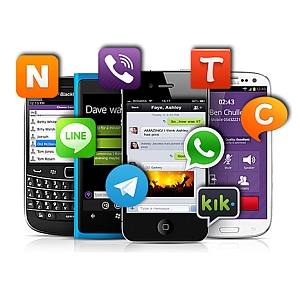Chat apps are popular and incredibly useful, however, there are also some faults with using messenger apps as your method of communicating. Like what, exactly? Here are a few of the cons of messaging apps.
Wifi or Mobile Data Only
Messaging applications are powered by wifi, which is great – it’s cheaper than paying for a messaging plan (even the cheapest plans can be more money than they’re worth). But it can also be inconvenient when you aren’t near a wifi hotspot and need to send someone an important message. To remedy this, you might just turn on your mobile data. But what happens when you run out of data for the month and aren’t near a hotspot? Nothing. At this point, you simply can’t use your messaging app.
Message Failure
Chat apps are notorious for how fast they send messages, but at the same tie, they’re also known for not sending messages at all. How? It comes down to service and connection. Some messaging apps have a higher percent of failed messages than others, but all apps succumb to failed messages at some point, and it can be frustrating. It’s especially frustrating when the recipient never receives the message you sent at all.
Duplicate Messages
This fault is also tied to the app’s connection. Sometimes when a message is sent, the recipient will get it more than once. This is due to a bad connection between the app and the recipient’s cellphone. Although not harmful, this can be extremely annoying for the message’s recipient.
Spam
Even with most applications requiring people to know a person’s handle, ID, or username in order to message them, some people still manage to send spam messages. It’s not unheard of to receive messages from random people on messaging apps. How said people find your unique username isn’t certain, but it’s been thought that through some apps’ suggestions, spammers can find users with certain words or letter sets in their username and initiate a conversation. This, however, is only the case if the spammer is a real person. In the case of receiving a spammy message from an obviously fake person, it’s usually a virus trying to infiltrate your cellphone or trick you into purchasing something.
As a rule of thumb, when using messenger apps you just need to think before you respond to strangers or click on strange links that are sent to you.

